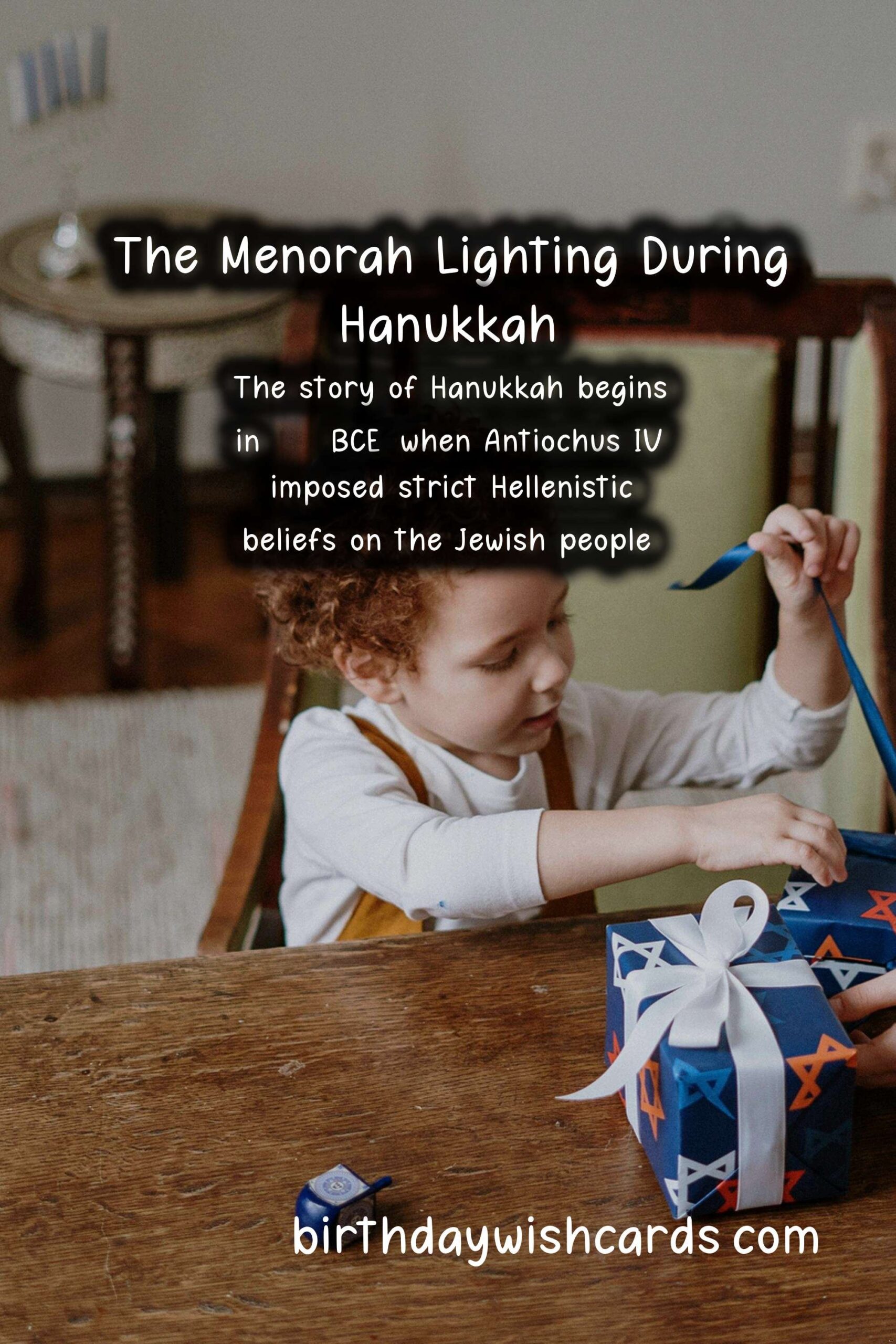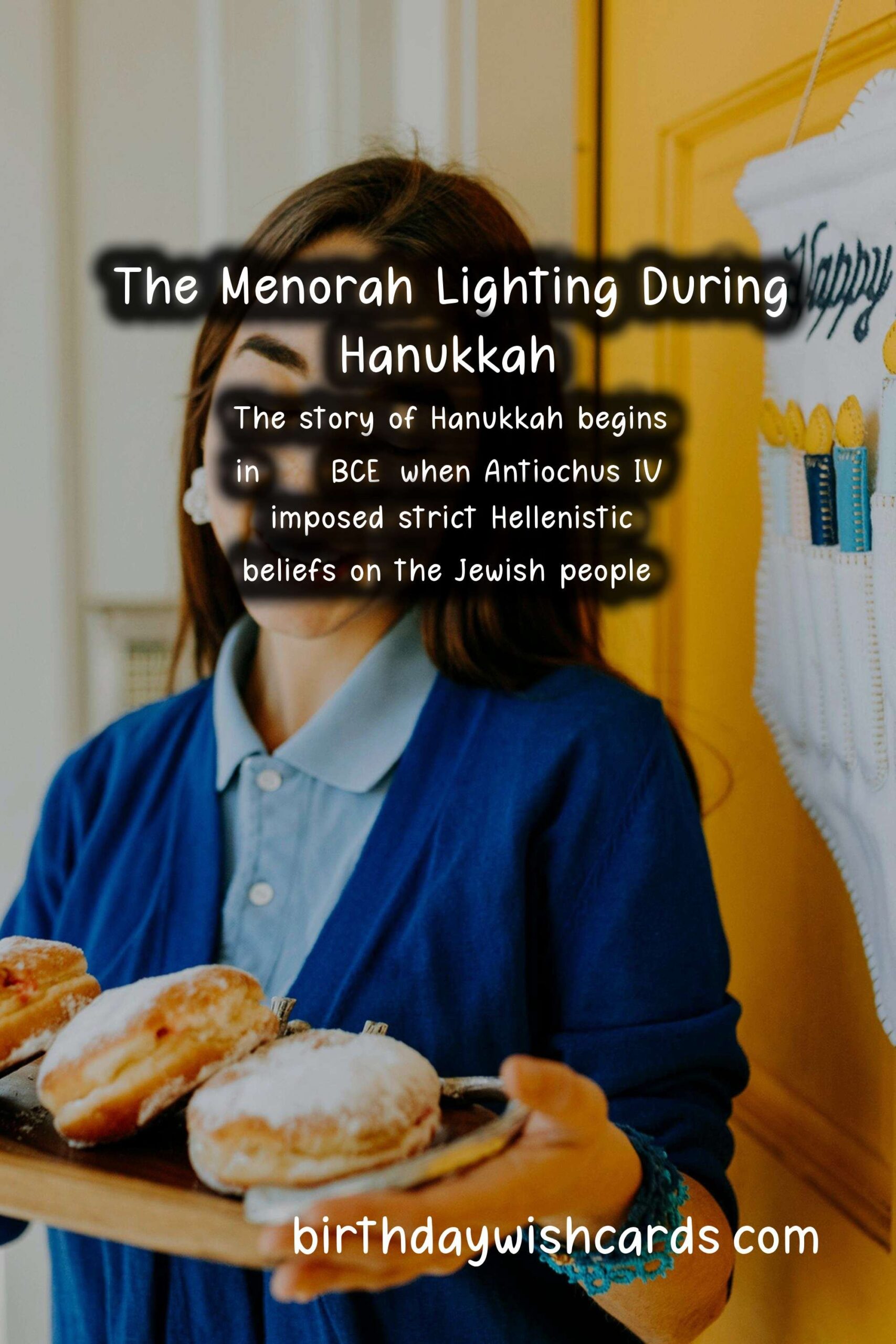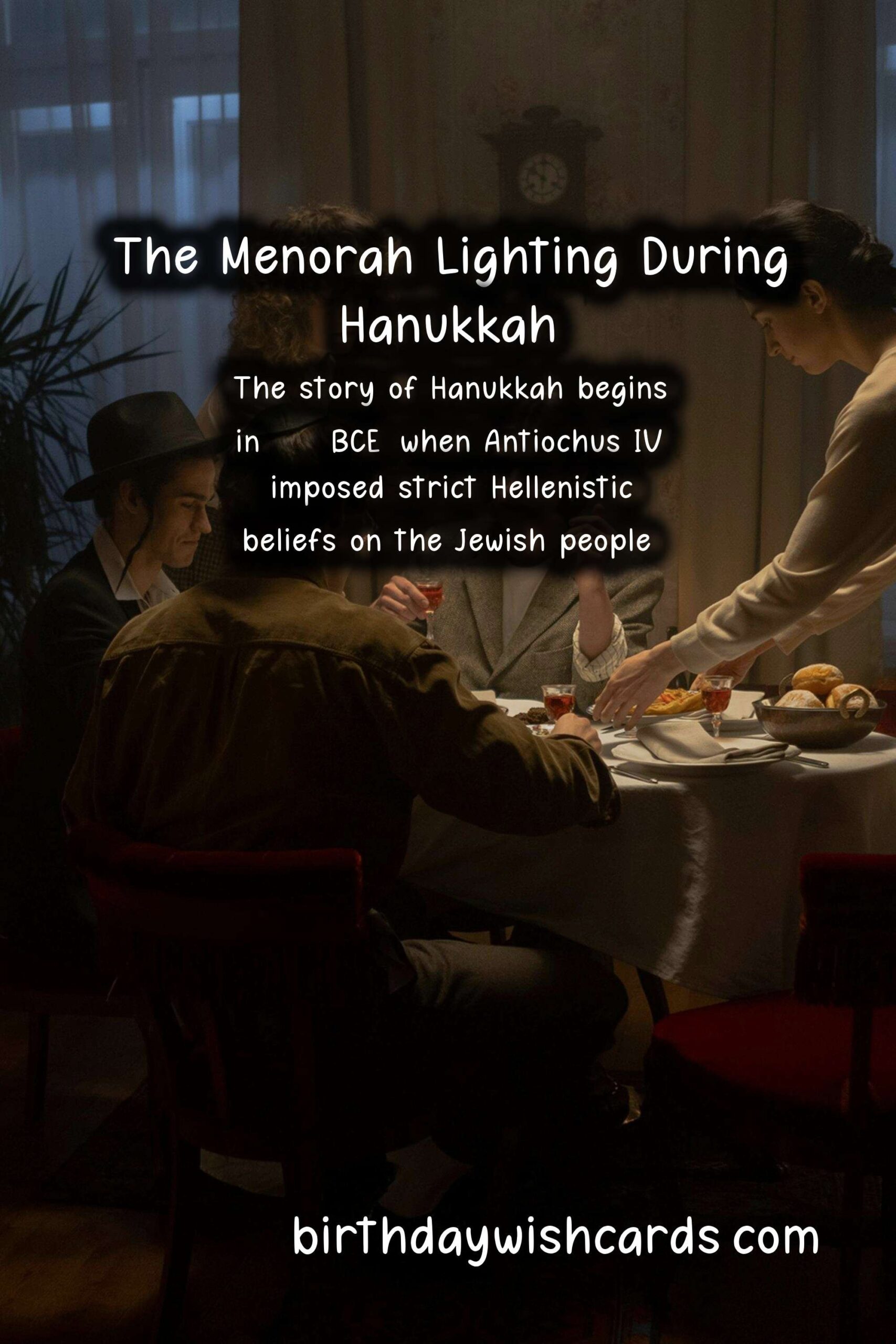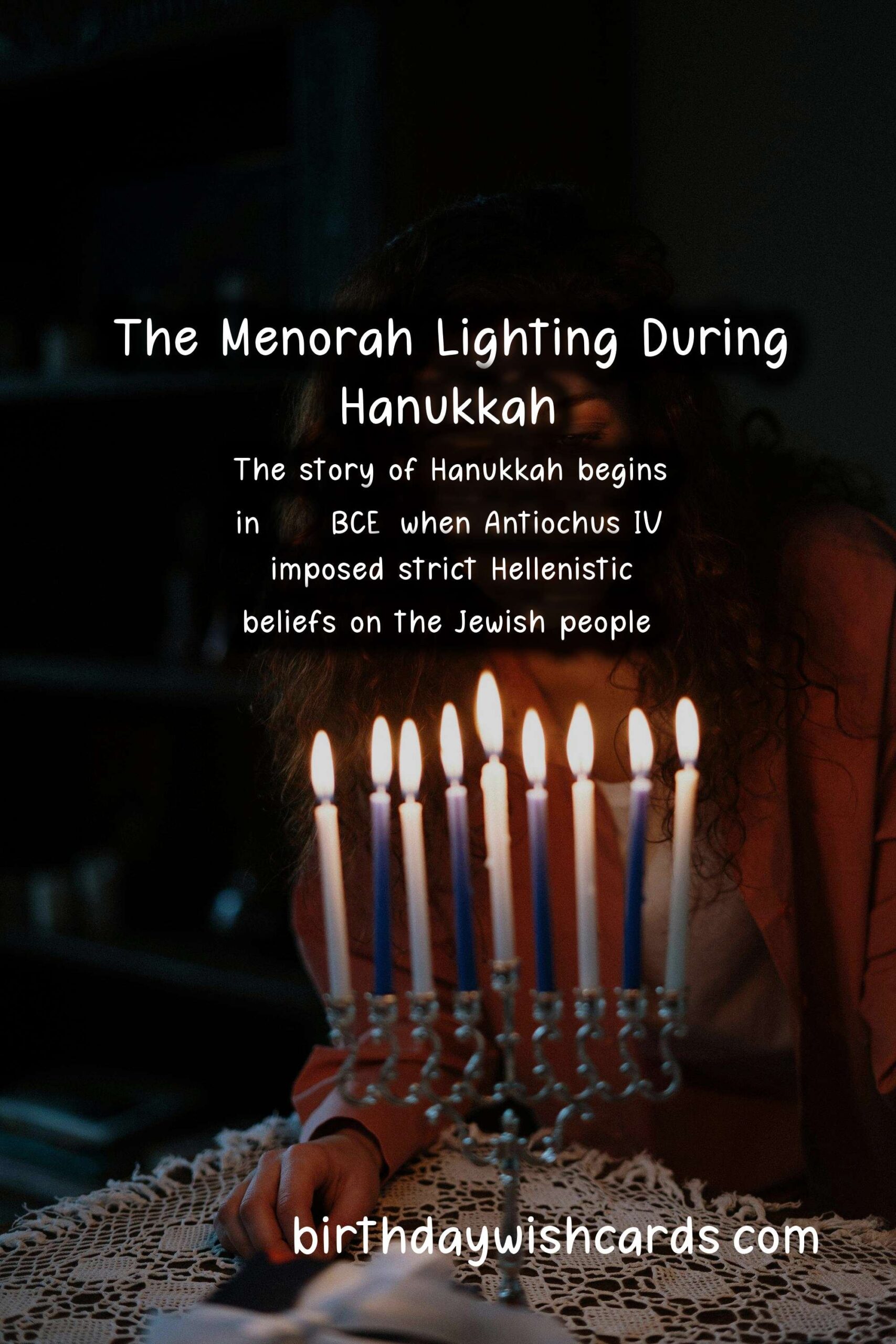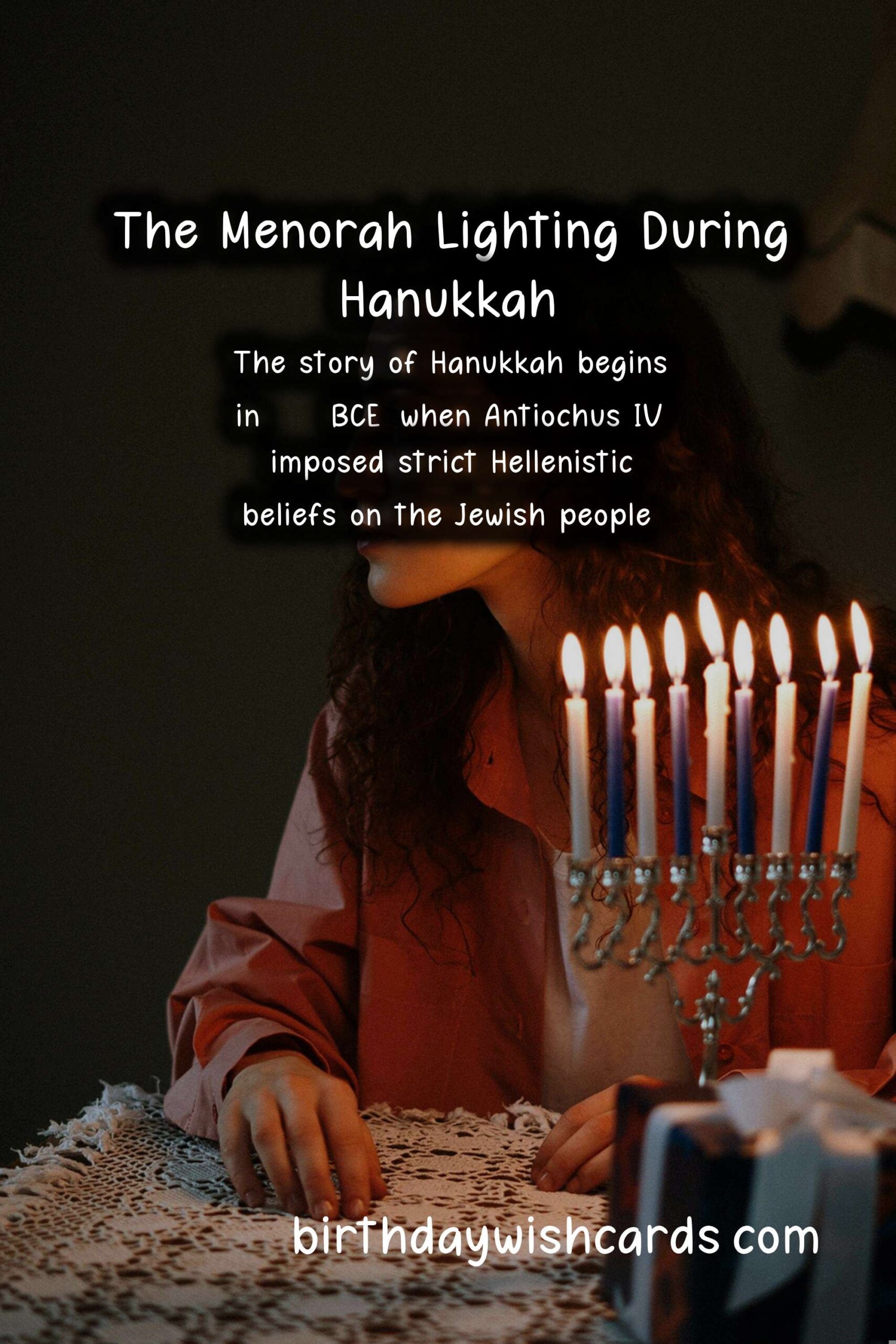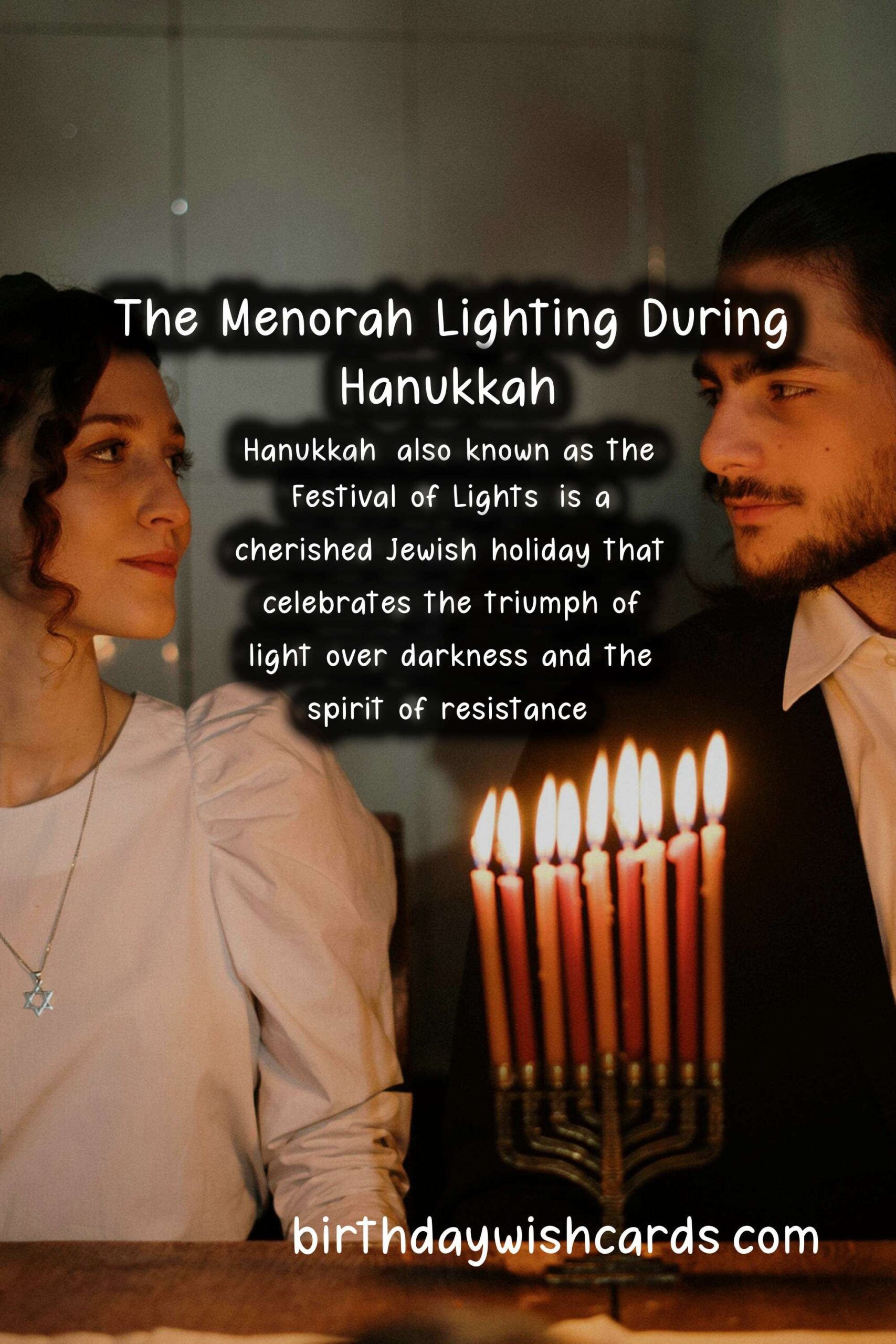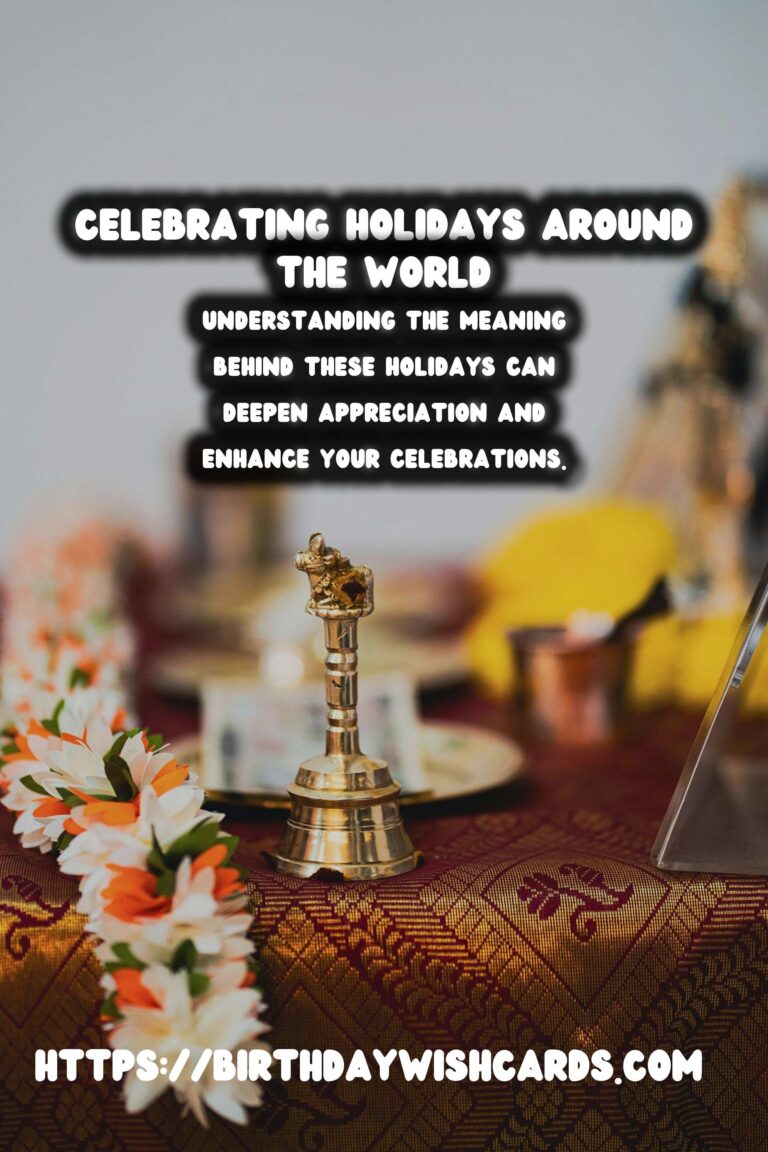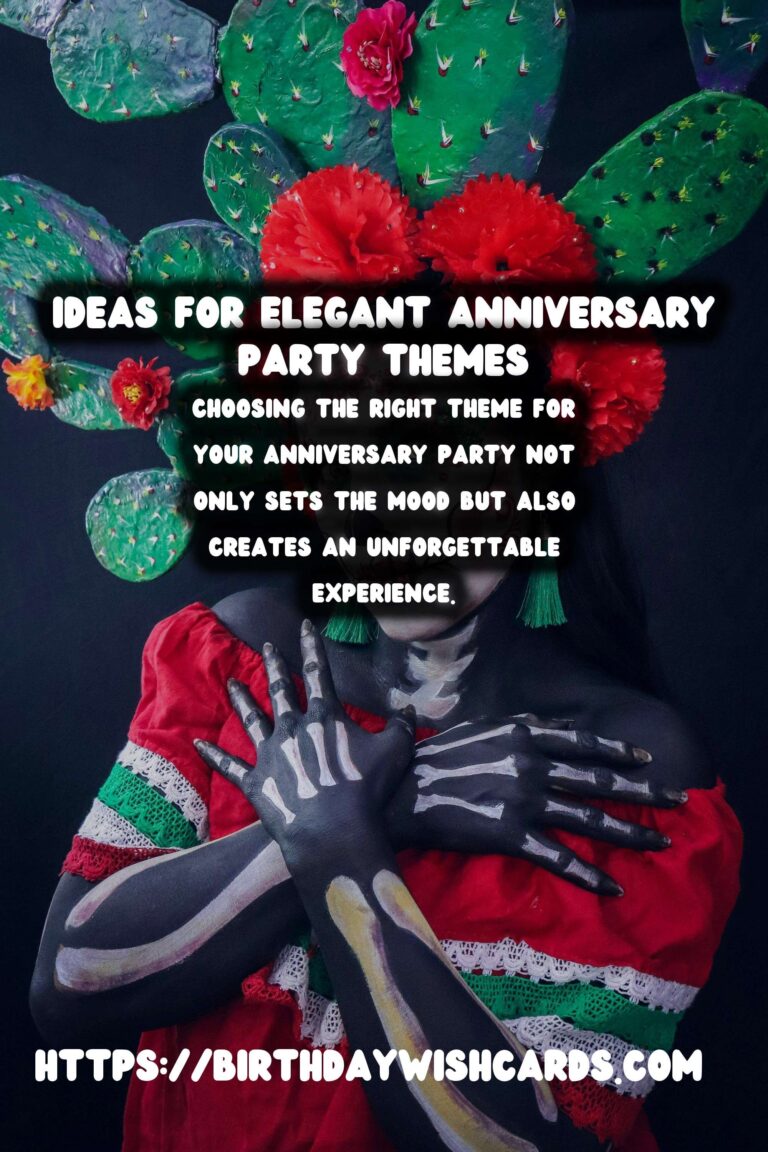The History Behind Hanukkah: Celebrating the Festival of Lights
The History Behind Hanukkah
Hanukkah, also known as the Festival of Lights, is a cherished Jewish holiday that celebrates the triumph of light over darkness and the spirit of resistance. It commemorates the rededication of the Second Temple in Jerusalem during the second century BCE and the miracle of the oil. This article delves into the rich history of Hanukkah and its significance in Jewish culture.
Origins of Hanukkah
The story of Hanukkah begins in 168 BCE, when Antiochus IV, the ruler of the Seleucid Empire, imposed strict Hellenistic beliefs and practices on the Jewish people. This led to significant cultural oppression and the banning of Jewish religious practices. The tension reached a boiling point, resulting in the Maccabean Revolt, led by Mattathias and his five sons, most notably Judah Maccabee.
The Maccabean Revolt
The Maccabean Revolt was a significant battle for Jewish autonomy, where the Maccabees fought against the overwhelming forces of the Seleucid king. After three years of struggle, they were eventually able to reclaim Jerusalem and the Second Temple in 165 BCE. This moment was pivotal, as it marked a restoration of religious freedom and self-determination for the Jewish people.
The Miracle of the Oil
Upon reclaiming the Temple, the Maccabees began the process of rededication. In the Temple’s sacred space, they found only enough consecrated oil to keep the menorah’s candles burning for one day. Amazingly, the oil lasted for eight days, leading to the tradition of lighting the menorah for eight nights during Hanukkah. This miracle serves as a foundational story that reminds the Jewish community of their faith’s resilience.
Hanukkah Traditions
Hanukkah is celebrated with various customs and practices that honor both the historical and religious significance of the festival. One of the most recognizable customs is the lighting of the menorah. The menorah holds nine candles: eight for each night of Hanukkah and a central candle, known as the shamash, used to light the others.
Each night, families gather to light the menorah, reciting blessings and singing traditional songs. Additionally, many families engage in games of dreidel, a spinning top that features Hebrew letters, symbolizing the phrase “a great miracle happened there.”
Food is another integral aspect of Hanukkah celebrations. Foods fried in oil, such as latkes (potato pancakes) and sufganiyot (jelly-filled doughnuts), are popular, representing the miracle of the oil.
The Historical Significance of Hanukkah
Hanukkah’s historical significance extends beyond its miraculous origins. It serves as a reminder of the importance of preserving cultural identity and freedom. The Maccabean Revolt illustrates the struggle against oppression and the fight for the right to practice one’s beliefs. For the Jewish people, Hanukkah symbolizes hope and resilience in the face of adversity.
Modern-Day Hanukkah Celebrations
In contemporary society, Hanukkah holds a special place in Jewish culture, often overlapping with Christmas festivities. It is commonly celebrated in homes across the world, with public menorah lightings in towns and cities. The festival has become a time for family gatherings, community events, and acts of charity.
Moreover, many Jewish communities organize educational programs to encourage understanding and appreciation of their traditions. Hanukkah serves as a platform for Jewish pride and unity, highlighting the shared history and joy of the Jewish people.
Conclusion
Hanukkah is more than just a holiday; it’s a celebration of perseverance, faith, and cultural identity. Through the lens of history, we see how the Festival of Lights symbolizes hope and the enduring spirit of the Jewish people, making it a timeless celebration that continues to radiate warmth and light every year.
Hanukkah, also known as the Festival of Lights, is a cherished Jewish holiday that celebrates the triumph of light over darkness and the spirit of resistance.
The story of Hanukkah begins in 168 BCE, when Antiochus IV imposed strict Hellenistic beliefs on the Jewish people.
#Hanukkah #FestivalOfLights #JewishHistory

